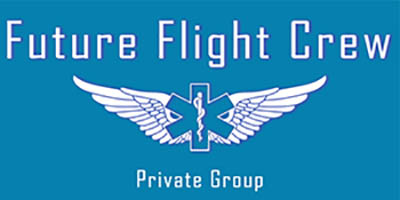HAMPTON ROADS, Va. – Seth Myers, President of the Air Evac Lifeteam discusses the new Senate Bill that could threaten the essential air medical services industry and what should be done to ensure access to medical care for everyone.
As reported by Global Medical Response, Air medical services save lives by delivering timely care to critically injured and acutely ill patients in a way no other service can provide.
When patients need critical transport because of life threatening injury or illness and ground transportation is not an option, doctors, nurses or first responders will request air medical services. Without regard for a patient’s ability to pay, air medical services deploy at a moment’s notice to help patients.
Too often, after the call is made and the crisis has passed, patients are informed by their insurance provider that the patient is responsible for the cost of air services.
These surprise bills are due to two factors:
- The insurer’s unwillingness to pay fair and reasonable reimbursement rates
- A federal rule mandating that air medical services, as federal providers of emergent services, make a good faith effort to collect the balance on a bill
In the middle of a crisis, patients shouldn’t worry about whether they are in-network.
Working together, we can achieve tangible solutions that provide patients the emergency air medical services they need, increase access and help prevent financial hardships.
Air Medical Services are Critical to Caring for Patients
Nearly one-third of Americans rely on air medical services to reach a Level 1 or Level 2 trauma center.
Nearly 90 percent of patients transported by air medical services are from a rural zip code, where access is becoming an increasing issue.
Since 2010, 106 of America’s 1,700 rural hospitals closed, expanding the medical desert that is growing across the country [North Carolina Rural Health Research Program. 106 Rural Hospital Closures: January 2010 – Present].
Transporting a patient to a higher level of medical care within the “Golden Hour,” the first hour after the occurence of a traumatic injury, considered the most critical for successful emergency treatment, not only increases their chances of survival but often improves outcomes and reduces cost/recovery time.
Congress already acted to address balanced billing for air medical services.
Patients shouldn’t be penalized for receiving life-saving emergency medical care, and that’s why we support the process established by Congress in the FAA Reauthorization Act of 2018 to address balance billing.
At the direction of Congress, the U.S. Department of Transportation, which has a federal statutory role to oversee the air ambulance industry and the Department of Health and Human Services have been directed “to establish an advisory committee to review options to improve the disclosure of charges and fees for air medical services, better inform consumers of insurance options for such services, and protect consumers from balance billing.”
Now is not the time to throw away the work that has already been done and potentially delay a solution to balance bills for air medical services even longer.
Congress should let the process it established work.
[divider style=”10″]
Interested in learning more about how to get started as a Flight Medic, Flight Nurse or EMS Pilot?
Join our Future Flight Crew Private Facebook Group. Answer 3 simple questions to join, takes less than a minute.
CLICK THE BANNER to Sign Up:
[arrows style=”arrow-red-11.png” align=”left”]



